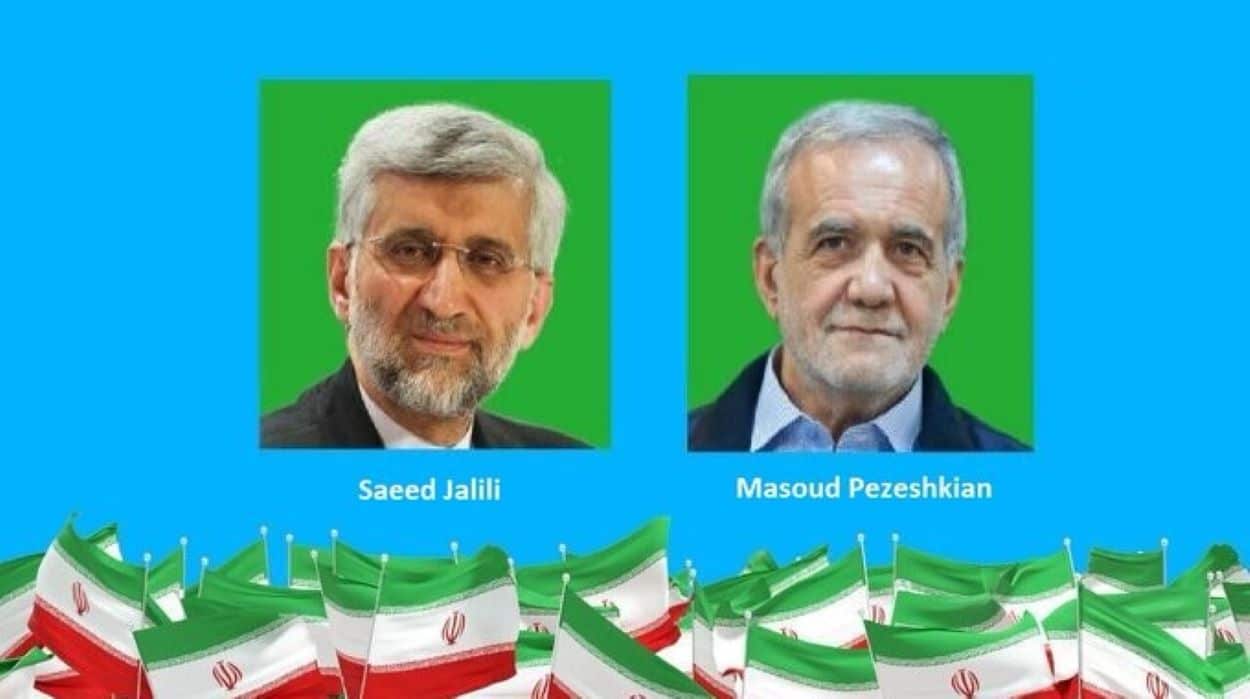Iran’s Presidential runoff will be between reformist Masoud Pezeshkian and ultraconservative Saeed Jalili.
Mohsen Eslami, the spokesman for Iran’s election office, reported that Pezeshkian received over 10,400,000 votes, while Jalili, a former nuclear negotiator, secured more than 9,400,000 votes. Approximately 24,500,000 out of 61 million eligible voters participated in the recent election, resulting in a 40 per cent turnout, a low record for the Islamic Republic.
Following the tragic death of President Ebrahim Raisi in a helicopter crash last month, Iran proceeded with its presidential election, marking only the second runoff since the Islamic Revolution.
Mohammad Bagher Ghalibaf, the conservative speaker of Parliament, and Mostafa Pourmohammadi, a conservative cleric, received fewer votes in the election. Additionally, 1,056,159 spoiled ballots were recorded in this election cycle.
The Guardian Council approved six candidates for the election. However, two ultraconservative Tehran mayors, Alireza Zakani and Raisi’s vice president, Amir-Hossein Ghazizadeh Hashemi, withdrew just before the vote.
Read: Ayatollah Khamenei Urges High Voter Turnout in Upcoming Iranian Presidential Election
In the previous 2021 elections, the disqualifications of many reformists and moderates led to widespread voter apathy, resulting in a turnout of just under 49 per cent, the lowest ever.
Iran’s supreme leader, Ayatollah Ali Khamenei, urged participation, while opposition groups, particularly those abroad, advocated for a boycott and questioned the election’s legitimacy.
Masoud Pezeshkian, 69, a distinguished heart surgeon and seasoned parliamentary representative for Tabriz, held the position of health minister under President Mohammad Khatami’s reformist administration from 1997 to 2005. Khatami has endorsed Pezeshkian’s candidacy, who has promoted the pursuit of constructive relations with Western nations to end Iran’s international isolation.
Saeed Jalili, 58, has consistently maintained a stance against Western engagement. Over the years, he has held senior key positions in Supreme Leader Khamenei’s office during the early 2000s and as a Supreme National Security Council representative.






